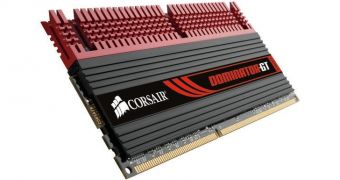The big players in the dynamic random access memory market, and the small ones too, for that matter, might be in for a rather nasty surprise this quarter (Q4, 2012).
We have said, on several occasions prior to this one, that memory makers were placing their hopes in the release of Microsoft's Windows 8 operating system.
Those hopes have been dashed, or will be dashed soon enough if what iSuppli is saying is even remotely close to the truth, which it probably is.
Windows 8 has yet to cause a rebound in memory sales. In fact, the new OS won't generate the double-digit percentage increase in quarterly DRAM shipments that its predecessors caused. If sales rise at all, the margin will be of 8% at best.
One reason for this is that PC orders aren't likely to rise by all that much in the fourth quarter of 2012, Windows 8 or no.
The other is that the OS has fairly low hardware requirements, so even if people do buy PCs, they won't need huge RAM capacities.
We have no doubt that some dearly hope for a repeat of what happened in 2000 (49% rise in DRAM shipments because of Windows 2000) and the third quarter of 2001 (41% increase).
Even before that, when there were hardly any PC owners around the world, Windows 95 caused a 23% rise in Q3 1995 and Windows 3.1 prompted 29% in 1992.
Had Windows 8 needed more memory at least in its ARM-compatible form (Windows RT), tablets and smartphones might have pushed the rebound above the 8% foreseen by iSuppli. As it is, that will not happen.
“The release of a new Microsoft OS traditionally has been accompanied by more advanced system requirements, which then fuels growth in the DRAM market as more bits are shipped,” said Clifford Leimbach, analyst for memory demand forecasting at IHS.
“However, starting with Windows 7 and continuing with Windows 8, Microsoft has taken a leaner approach with its operating systems, maintaining the same DRAM requirements as before. Meanwhile, consumers are continuing to eschew new PC purchases in the fourth quarter, with Windows 8 not expected to change this situation.”

 14 DAY TRIAL //
14 DAY TRIAL //